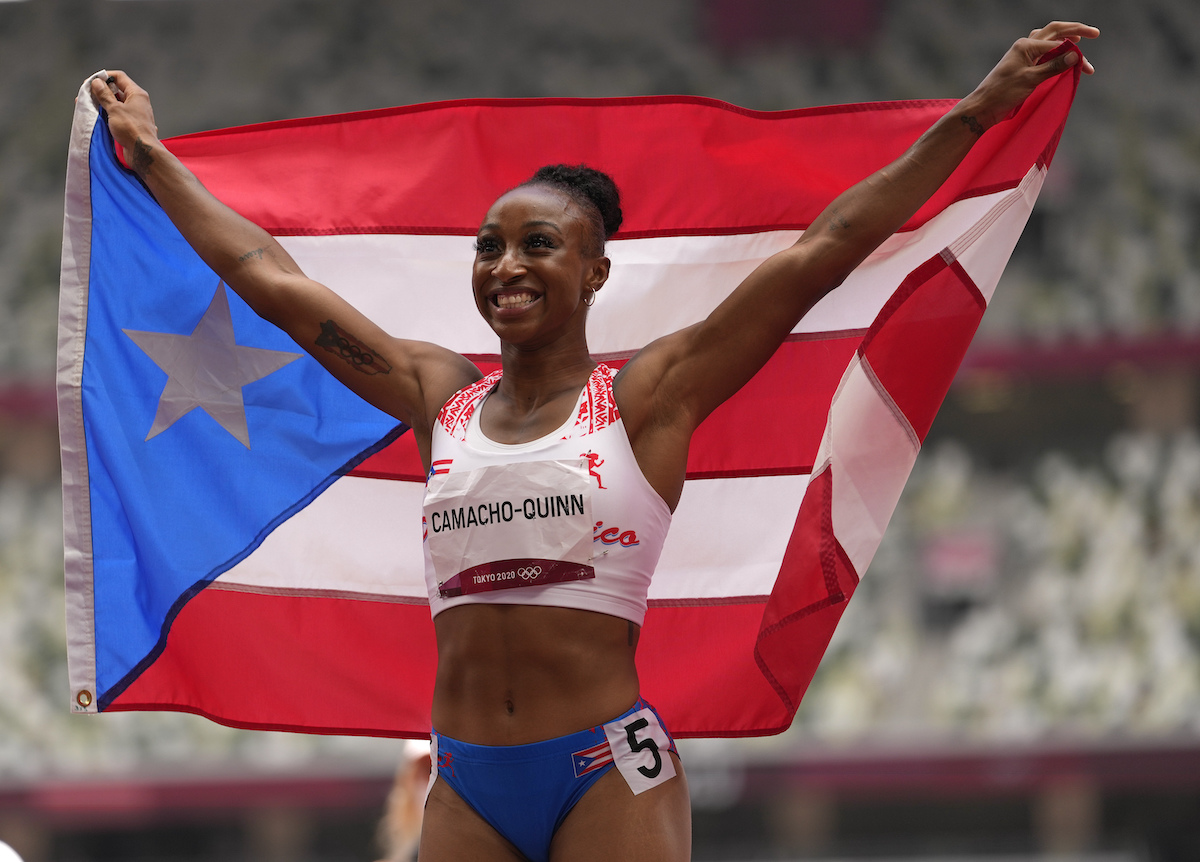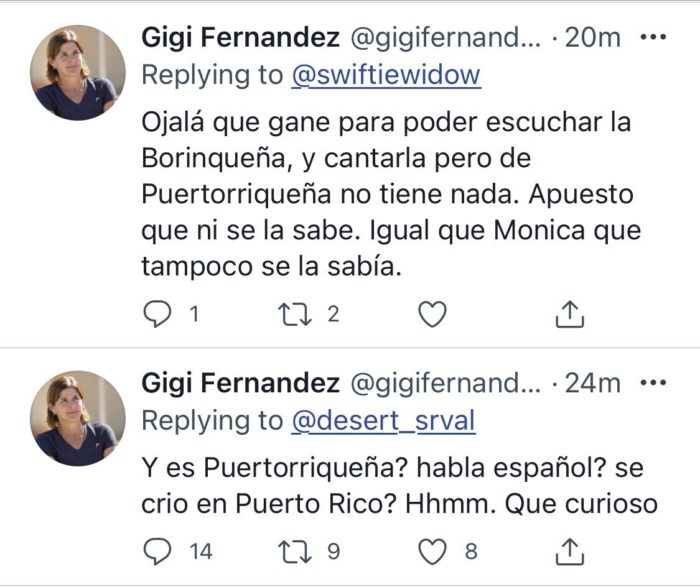

Jasmine Camacho-Quinn, of Puerto Rico celebrates after winning the gold in the women’s 100-meters hurdles final at the 2020 Summer Olympics, Monday, August 2, 2021, in Tokyo, Japan. (AP Photo/Martin Meissner)
If there is one fact that can never be questioned (ever) about Olympic gold medalist Jasmine Camacho-Quinn, it’s this: her historic win this week in the 100-meters hurdles is a win for Puerto Ricans everywhere—especially for Puerto Ricans like me who were born in the mainland United States.
We can and always will represent our parents’ island with pride and love.
That is what Camacho-Quinn has done for all of us.
Seeing her happiness on screen and the celebration tweets was an emotional moment. So were the videos of Camacho-Quinn’s family in South Carolina rooting for her, knowing she decided to run for Puerto Rico for her mom. Representing our small country was an incredible thing to watch as a Boricua.
Her 2017 tweet had already predicted the possibility.
So seriously. Quit asking. Puerto Rico all day everyday and that's the end of it ! ??????????????
— Jasmine Camacho-Quinn (@JCamachoQuinn) June 26, 2017
Four years later, Camacho-Quinn deserves all the love and accolades.
What does her win mean for the generation of Puerto Ricans born on the mainland? First, Camacho-Quinn destroyed the shortsighted and archaic trope that “you’re not really Puerto Rican since you weren’t born on the island.”
The ill-informed notion that “you are not one of us.”
I was born in Macon, Georgia, where my parents lived at the time in 1995. Growing up, I would recall crying to my parents since I felt like I wasn’t Puerto Rican enough. It was a hard thing especially as an Army brat moving around and having nowhere in the mainland to call home but always knowing Puerto Rico was my home.
With the feeling of not being “Puerto Rican enough,” I felt like an outsider in my culture but also not understood from my other Latinx friends since I was usually the only Caribbean Latinx in the group.
Watching Camacho-Quinn helped me realize it doesn’t matter where you are born. If you are Puerto Rican, you are Puerto Rican. Punto.
Still, as if on cue, there was plenty of social media ignorance both from Puerto Ricans and people in the U.S. that kept questioning there were Camacho-Quinn’s identity.
The gatekeeping of who is and who isn’t Puerto Rican needs to stop—especially when it comes towards Afro-Boricuas. Comments, for example, from Gigi Fernández, a two-time Olympic gold medalist from Puerto Rico who represented U.S., are just sad. Fernández later claimed she was “hacked,” but the now-deleted tweets (“Who is Jasmin [sic] Camacho? Is she Puerto Rican? Does she speak Spanish? How curious.”) will be forever. Another deleted tweet from Fernández alleged Camacho-Quinn wouldn’t know the words to Puerto Rico’s national anthem.
Are you serious @gigifernandez Here you go again. What is your point anyways? pic.twitter.com/BmFbUBrY5S
— En la Cancha Radio (@enlacanchapr) August 2, 2021


Fernández was just wrong.
Momento cuando suena "La Borinqueña" gracias a @JCamachoQuinn ?????? pic.twitter.com/RBrqROPre0
— El Maja (@YomarElMaja) August 2, 2021
Hearing “La Boriqueña” and seeing Camacho-Quinn with the national flower in her hair as well as the flag over her shoulders was such an unforgettable moment in my life as well as for little kids to see too. Let’s hope now people will now know where Puerto Rico is on a map and also that it is a country (yes, am looking at you, USA TODAY).
Clarification: A version of this story was updated to clarify a quote by Jasmine Camacho-Quinn, who called the U.S. territory of Puerto Rico a country. https://t.co/nXZWD9SIOx
— USA TODAY (@USATODAY) August 4, 2021
As Camacho-Quinn stated in an interview, “Just to put on for such a small country, to give little kids hope. I’m just glad I’m the person to do that. I’m pretty happy with that.”
?????????? gracias!!!!!! pic.twitter.com/vU60pzenah
— Arelis R. Hernández (@arelisrhdz) August 2, 2021
That’s Boricua excellence right there.
And it means excellence for ALL Puerto Ricans.
***
Angela Bonilla is from Utuado, Puerto Rico but moved around due to being an Army brat. She is a freelance journalist based in Austin, Texas. Twitter: @_angiemarieb.



[…] Angela Bonilla touched on in August, gatekeeping was being done on Twitter and other social platforms regarding who is and who isn’t […]